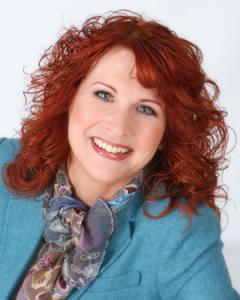Employee Programs Caregivers Find Valuable: The Next Model for Human Resource Eldercare Programs
The next model for human resources elder care programs focuses on decision-making support for employees stressed by caring for aging parents.
GOLDEN, CO, USA, May 3, 2021 /EINPresswire.com/ -- As aging parents' health becomes more concerning, adult children caregivers become increasingly stressed about making decisions that impact day-to-day lives. According to caregiving expert Pamela D Wilson, caregiving decisions both short and long-term, involve aspects that include healthcare, financial planning, and legal matters.
From a practical standpoint, it is rarely possible for any person without significant aging or healthcare experience to know what questions to ask that result in concise, easy-to-understand answers that support decision-making about the care of an elderly parent. Working caregivers who have taken on additional family responsibilities due to the pandemic are more stressed than ever.
Why Elderly Parents Resist Help and What Adult Children Caregivers Can Do
Elderly parents wishing to remain independent may resist help from adult children who they view as unsympathetic or interested in controlling their lives. This back-and-forth relationship dynamic leads to additional stress for adult children who attempt to help elderly parents and find their efforts unwanted or unappreciated.
When adult children caregivers gain a better understanding of the perspective of elderly parents and act in a consultative rather than a telling role, caregiving relationships improve. Acting in an impartial but informative manner requires that caregivers become informed and able to offer information to elderly parents. Initiating ongoing conversations about the wishes of elderly parents and plans to manage unexpected aspects of aging and needing care allows families to develop a plan to care for aging parents.
The activity of developing a care plan offers a best-case scenario to reduces caregiver stress and improve confidence in the quality of decision-making for elderly parents. When elderly parents feel involved in decisions about their care they are more likely to trust adult children and participate in agreed-upon plans and solutions. This positive relationship aspect between elderly parents and adult children caregivers enhances communication with doctors, financial advisors, and attorneys all involved in creating a care plan for aging parents.
How can workplaces provide decision-making support for employees involved in family support situations? How has the pandemic affected business operations and recognition of changes in family needs?
Workplaces Can Help Caregivers By Refocusing Eldercare Programs
Workplaces focused on transitioning to a remote workforce and adjusting business practices in the past 12 months as a result of the pandemic have had little time to focus on providing support for employees caring for aging parents. Workplaces can help family caregivers by taking another look at offering eldercare programs specifically related to decision-making support.
Managing work and life is an ongoing concern for all adults. Developing updated support systems for family caregivers is an opportunity for employers to meet the needs of today’s caregivers. Many systems currently supporting working caregivers are not linked to aging support providers with expertise in issues experienced by caregivers but instead, offer general counseling and information and referral services.
As a result, caregivers express dissatisfaction with counselors and therapists who lack the experience to offer support for their specific issues. Many attend a couple of sessions and drop out. Because of confidentiality, feedback is rarely provided to employers sponsoring these caregiver programs.
Instead, the perception by employers is low employee participation. Another barrier to offering employee caregiver programs is a mistaken belief that because employees are not be asking for information, there is no need or interest. The reality is that employees who discuss elder care issues are concerned about being perceived as less dedicated or losing out on promotions or greater responsibility.
This thinking is in contrast to a workplace culture that supports childcare. As corporations become more aware of the importance of supporting total family situations for childcare and eldercare, employees will become more comfortable and forthcoming to express needs and concerns.
Decision-Making Support Models for Caregivers
Conducting a survey or a needs assessment is essential for all employees regardless of family care responsibilities. Anonymous responses are critical so that employees are candid in their responses. Development of the survey utilizing the experience of aging or caregiving expert is helpful so that questions are not worded in a manner that appears insulting or judgmental.
The survey results aid in developing informational programs to help employees manage family responsibilities and related stress. The uncertainty experienced by caregivers helping elderly parents to make decisions results because of a lack of experience and information about how to make healthcare decisions, what programs and services are available, and aspects of developing a care plan for aging parents that include financial and legal discussions.
Informational educational events that include Q&A sessions have proven highly successful in meeting the needs of working caregivers. Ensuring confidentiality is an aspect available through online virtual meetings where video participation is not a requirement. Caregivers are more willing to discuss problems and request information when their identity remains confidential.
Additionally, offering separate programs for management and non-management enhances the willingness of individuals to be candid about issues. This is especially valid if non-management employees feel that supervisors lack an understanding of their needs and responsibilities as caregivers. It is important that all employees of all races and cultures receive equal support in caring for aging parents.
Making information accessible through company learning management systems ensures that employees have access when they need the information. If there is a way to maintain employee confidentiality regarding access and use of the programs, participation is likely to increase. In all decision-making support models for employees, ongoing communication is important to encourage participation.
Caregiver Support for Individuals, Corporations, and Groups
Wilson’s mission to reach one million caregivers worldwide is supported by her passion for working with groups and corporations to provide keynote speaking sessions, live or online presentations, webinars, and unique online or on-site education programs. She supports family caregivers and aging adults through her caregiving library, videos, The Caring Generation podcasts, and 1:1 telephone or online eldercare consultations.
Corporations interested in learning more about the decision-making model of support for caregivers are encouraged to contact Wilson for more information by emailing Inquiry_For_Pamela@PamelaDWilson.com or calling +1 303-810-1816.
Pamela D. Wilson
Pamela D. Wilson, Inc.
+1 303-810-1816
email us here
Visit us on social media:
Facebook
Twitter
LinkedIn
How to Talk About Getting Old and Not Be Afraid
Legal Disclaimer:
EIN Presswire provides this news content "as is" without warranty of any kind. We do not accept any responsibility or liability for the accuracy, content, images, videos, licenses, completeness, legality, or reliability of the information contained in this article. If you have any complaints or copyright issues related to this article, kindly contact the author above.



